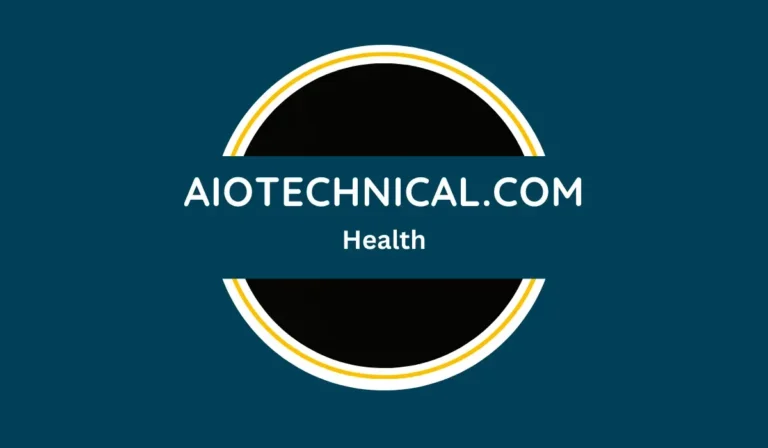Unlock the Power of Fitosterina for Heart Health and Wellness
Fitosterina, also known as phytosterol, is gaining significant attention in the health and wellness industry. Derived from plants, fitosterina offers numerous health benefits that make it a valuable component in various diets and supplements. Its ability to support heart health, manage cholesterol levels, and enhance overall well-being has made it an important topic of discussion. This article explores what fitosterina is, its benefits, and why it is essential to incorporate it into a balanced lifestyle.
What is Fitosterina?
Fitosterina, or plant sterol, is a naturally occurring compound found in fruits, vegetables, nuts, and seeds. Its structure is similar to cholesterol, but unlike cholesterol, it has a positive impact on the body. By mimicking cholesterol, fitosterina can effectively block its absorption in the intestines, leading to reduced levels of bad cholesterol (LDL) in the bloodstream. This makes it a crucial component for individuals looking to improve their cardiovascular health.
The Role of Fitosterina in Cholesterol Management
One of the most notable benefits of fitosterina is its ability to manage cholesterol levels. Studies have shown that regular intake of fitosterina can reduce LDL cholesterol by up to 10%, making it a natural alternative to cholesterol-lowering medications. By inhibiting the absorption of dietary cholesterol, fitosterina promotes a healthier lipid profile, which in turn reduces the risk of heart disease.
For individuals at risk of cardiovascular issues or those looking to maintain a healthy heart, incorporating fitosterina-rich foods or supplements into their diet can make a significant difference. Foods fortified with plant sterols, such as certain margarines, yogurt, and juices, provide an easy way to consume fitosterina daily.
How Fitosterina Works in the Body
Fitosterina’s unique structure allows it to compete with cholesterol for absorption in the digestive system. When fitosterina enters the small intestine, it takes the place of cholesterol molecules, preventing them from entering the bloodstream. This process leads to a decrease in overall cholesterol levels, particularly LDL cholesterol, which is known to contribute to plaque buildup in arteries.
Moreover, fitosterina does not affect high-density lipoprotein (HDL), or “good” cholesterol, which is beneficial for the body. Maintaining healthy levels of HDL while reducing LDL is crucial for heart health, and fitosterina supports this balance effectively.
Health Benefits of Fitosterina
Fitosterina offers a range of health benefits beyond cholesterol management. Its natural properties make it a valuable addition to a balanced diet, promoting overall well-being. Here are some of the key benefits of fitosterina:
1. Supports Cardiovascular Health
As mentioned earlier, fitosterina is widely known for its role in reducing LDL cholesterol. Lower LDL levels help prevent atherosclerosis, a condition where arteries become clogged with fatty deposits. By keeping arteries clear, fitosterina reduces the risk of heart attacks, strokes, and other cardiovascular diseases.
2. Aids in Weight Management
Fitosterina can also contribute to weight management. Because it limits the absorption of cholesterol and fats, it may help individuals control their weight more effectively. While it is not a direct weight-loss supplement, it can support a healthy metabolism and reduce the intake of unhealthy fats, which in turn promotes a healthier weight.
3. Enhances Immune Function
Studies suggest that fitosterina may boost the immune system by enhancing the body’s ability to fight off infections and diseases. The anti-inflammatory properties of plant sterols help regulate the immune response, reducing inflammation and supporting the body’s natural defenses.
4. Potential Anti-Cancer Properties
Some research indicates that fitosterina may play a role in preventing certain types of cancers. While more studies are needed, initial findings suggest that plant sterols could inhibit the growth of cancer cells, particularly in colon, breast, and prostate cancers. The antioxidant properties of fitosterina may contribute to this effect, helping to neutralize harmful free radicals in the body.
Foods Rich in Fitosterina
Incorporating fitosterina into your diet is easier than you might think. Many plant-based foods naturally contain this beneficial compound. Here are some foods rich in fitosterina that you can easily add to your meals:
- Nuts and Seeds: Almonds, sunflower seeds, and pistachios are excellent sources of fitosterina.
- Vegetable Oils: Corn oil, olive oil, and soybean oil contain high levels of fitosterina.
- Legumes: Beans, lentils, and peas are also rich in plant sterols.
- Fruits and Vegetables: Broccoli, carrots, and oranges provide moderate amounts of fitosterina.
- Fortified Foods: Some products, such as fortified margarine, milk, and orange juice, are specifically designed to include higher levels of fitosterina.
By incorporating these foods into your daily diet, you can naturally increase your intake of fitosterina and enjoy its health benefits.
Fitosterina Supplements: Are They Necessary?
For individuals who struggle to get enough fitosterina through diet alone, supplements are an option. Fitosterina supplements are widely available and can provide the recommended daily intake without requiring major dietary changes. However, it’s essential to consult with a healthcare provider before starting any new supplement regimen.
While supplements can be beneficial, it’s always best to obtain nutrients from whole foods whenever possible. Whole foods provide additional vitamins, minerals, and antioxidants that supplements may not offer. That said, fitosterina supplements can be a convenient and effective way to lower cholesterol and support heart health for those who need it.
Fitosterina and Heart Health: The Scientific Evidence
The scientific community widely supports the use of fitosterina for managing cholesterol and improving heart health. Numerous studies have confirmed its effectiveness in reducing LDL cholesterol and lowering the risk of cardiovascular diseases. The European Food Safety Authority (EFSA) and the American Heart Association both recognize the benefits of plant sterols and recommend their inclusion in a heart-healthy diet.
Clinical trials have demonstrated that consuming 1.5 to 2.4 grams of plant sterols per day can reduce LDL cholesterol levels by 7 to 10% within three weeks. This reduction is comparable to the effects of cholesterol-lowering medications, making fitosterina a natural and safe alternative for many individuals.
Potential Side Effects of Fitosterina
While fitosterina is generally considered safe for most people, it’s essential to be aware of potential side effects. In rare cases, excessive consumption of plant sterols can lead to a condition called sitosterolemia, where the body absorbs too much sterol, leading to high levels in the blood. This can increase the risk of cardiovascular disease.
For the majority of people, however, moderate consumption of fitosterina through diet or supplements poses no risk and offers numerous health benefits. As always, it’s important to consult with a healthcare professional if you have any concerns about fitosterina intake.
Fitosterina in the Modern Diet
In today’s fast-paced world, maintaining a healthy diet can be challenging. However, with the growing awareness of fitosterina and its benefits, more people are seeking ways to incorporate it into their meals. Many food manufacturers now offer products fortified with plant sterols, making it easier than ever to consume fitosterina regularly.
By choosing fitosterina-rich foods and supplements, individuals can take proactive steps toward better heart health, reduced cholesterol levels, and overall wellness. Whether through whole foods or fortified products, fitosterina is an essential part of a balanced and health-conscious diet.
Conclusion
Fitosterina, or plant sterol, is a powerful compound with numerous health benefits, particularly in cholesterol management and heart health. By reducing LDL cholesterol and supporting a healthy cardiovascular system, fitosterina plays a critical role in preventing heart disease and promoting overall well-being. Whether consumed through foods or supplements, incorporating fitosterina into your diet is a natural and effective way to enhance your health.
With its wide range of benefits and minimal risks, fitosterina is a valuable addition to any health-focused lifestyle. By understanding its role, benefits, and how to incorporate it into daily life, you can take control of your health and enjoy the long-term advantages that fitosterina provides.






